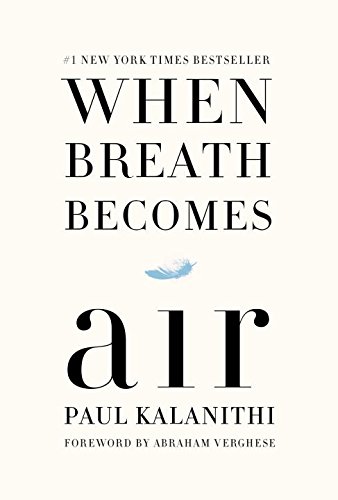Review of WHEN BREATH BECOMES AIR
by Johny McFliggen, PhD Literature & Business, Oxford
The notion of a stage four lung cancer diagnosis at the age of 36 is enough to make even the most stoic of us sit up and take notice. In "When Breath Becomes Air," Paul Kalanithi takes the reader on an intellectually rigorous and emotionally charged journey that is as much about the life well-lived as it is about the inevitability of death. This isn't your average memoir—it is a profound meditation on what it means to be alive, penned by someone who has straddled the realms of literature and medicine with an elegance that most writers could only dream of.
Kalanithi's narrative begins with his transformation from a wide-eyed literature student to a neurosurgeon, driven by a quest to understand the human condition. One might say he was like a real-life Dr. Gregory House, minus the sarcasm and questionable bedside manner, deeply engrossed in the mechanics of the mind and the meaning of existence. His prose is reflective of his dual training—literate, incisive, and at times, transcendental. It is as if each sentence were a finely honed scalpel, cutting through the mundane to reveal the visceral heart beneath.
The second act of his life, marked by his own diagnosis, forces a role reversal from doctor to patient. Here, Kalanithi's reflections take on a raw intensity; he writes not just with the clarity of a seasoned physician but with the vulnerability of a man confronting his mortality head-on. This duality offers readers a rare perspective on death, one that is both clinical and deeply personal. It's akin to stepping into an episode of "Grey's Anatomy" where the script suddenly becomes real and infinitely more tragic.
Critics have hailed this book as possessing the gravity and wisdom reminiscent of ancient Greek tragedies. Yet, I dare say it transcends such comparisons by injecting a modern urgency into timeless philosophical questions. The abrupt ending, due to Kalanithi's untimely death, leaves readers in a state of suspended reflection—a stark reminder of life's unpredictability. But Lucy Kalanithi's epilogue serves as a gentle coda, wrapping her husband's unfinished symphony with tenderness and dignity.
Comparisons to Atul Gawande's "Being Mortal" are inevitable, yet Kalanithi's memoir stands apart with its poignant intimacy. While Gawande analyzes end-of-life care through a clinician's lens, Kalanithi offers us his soul laid bare, inviting us into the inner sanctum of his hopes and fears. Similarly, Randy Pausch's "The Last Lecture" echoes in its exploration of life under the shadow of death, yet Kalanithi's narrative resonates with a distinct authenticity that stems from his unique crossroads as both healer and patient.
"When Breath Becomes Air" is not merely a book about dying; it is a clarion call to examine our lives and find meaning within them. It challenges readers to consider what makes life worth living when faced with its imminent conclusion. Paul Kalanithi's eloquent prose ensures that his legacy will endure—a testament to the enduring power of words even when breath becomes air.
Purchase Link: WHEN BREATH BECOMES AIR on Amazon



